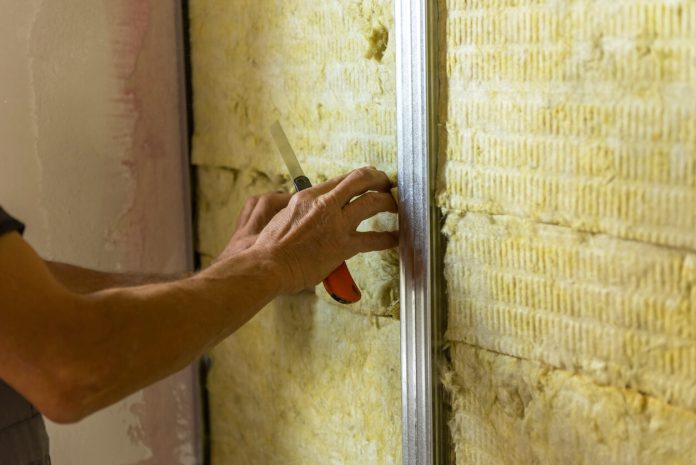You know how important it is to keep your business comfortable for customers and employees. But with so many options for insulation these days, how do you choose what’s best for your commercial building? The right insulation solution depends on factors like your building size, how it’s used, and your budget.
In this article, we’ll break down the different types of commercial insulation, from spray foam to radiant barriers and beyond. We’ll help you understand the pros and cons of each option. And we’ll provide tips for choosing the best insulation for your business’s unique needs and constraints.
With the right information, you can make an informed decision on a custom insulation solution to increase comfort and efficiency in your commercial property.
Assessing Your Commercial Building’s Insulation Needs
According to expert insulation contractor denver co, to determine the best insulation solutions for your commercial property, you’ll need to evaluate factors like building size, usage, and budget. For large warehouses or industrial spaces, spray foam or fiberglass batts are popular options, as they can insulate expansive areas efficiently. If you operate a retail space, restaurant or office, less obtrusive options like blow-in cellulose or polyurethane board may suit your needs while maintaining aesthetics.
Building Usage
How your building is used significantly impacts the type of insulation needed. Cold storage facilities have different requirements than gyms, for example. Consider how insulation could impact building operations or the customer experience. A restaurant, for instance, may need acoustical treatment to muffle kitchen sounds.
Energy Efficiency Goals
The level of efficiency you want to achieve will guide your insulation choice. More robust materials like spray foam provide superior temperature control and lower utility bills but at a higher upfront cost. If budget is a concern, less expensive fiberglass or cellulose can still improve efficiency, especially in older buildings. Adding insulation to attics, basements or rim joists often provides the best return on investment.
Installation Requirements
Some insulation options are DIY-friendly, while others require professional installation for safety, effectiveness and compliance with building codes. Spray foams, in particular, require proper application equipment, protective gear, and training.
Consider your in-house capabilities and whether hiring pros fits your budget. With so many commercial insulation solutions available, determining what’s right for your building may seem daunting. Focusing on factors like usage, goals and installation needs will set you on the path to optimal efficiency and comfort.
Popular Insulation Options for Commercial Spaces
When it comes to insulating a commercial building, you have several options to consider based on your needs and budget.
Fiberglass
Fiberglass is a popular, cost-effective choice for many business owners. It comes in rolls that can be installed in walls and attics. While fiberglass works well for temperature control, it may not reduce noise as effectively as other options. It can also irritate the skin, so professional installation is recommended.
Pros
- Cost-effective solution for improving temperature control
- Easy installation using pre-cut rolls
- Works well for insulating large, open areas like attics and walls
Cons
- May not provide optimal sound insulation
- Glass fibers can irritate skin if not installed professionally
- Requires periodic replacement due to material degradation over time
Cellulose
Made from recycled paper, cellulose is an eco-friendly option suitable for attics and walls. It insulates well against both temperature and noise. Cellulose requires dense packing to be effective, so installation can be more difficult. It is also more expensive than fiberglass.
However, for many businesses focused on sustainability, the benefits of cellulose outweigh the costs.
Pros
- Made from recycled, eco-friendly materials
- Insulates well against both temperature and noise
- Suitable for insulating attics and walls
Cons
- Requires dense packing for effectiveness, so installation can be more difficult
- More expensive initially than some other options like fiberglass
Foam board
Foam board, or polyisocyanurate, provides one of the highest R-values per inch of any insulation, making it ideal for spaces with limited room for thick insulation. It is often used on exterior walls, roofs, and attics. Foam board is moisture-resistant but more costly than fiberglass or cellulose. It also requires professional installation to ensure maximum effectiveness and safety.
Pros
- Provides high insulation value per inch of thickness
- Suitable for spaces with limited room for thick insulation layers
- Resistant to moisture
Cons
- Higher initial cost compared to options like fiberglass and cellulose
- Requires professional installation for maximum effectiveness and safety
- Rigid panels can be difficult to fit around irregular shapes
With so many great options available, the key is determining what factors matter most for your commercial space. Do you need top energy efficiency? Soundproofing? An eco-friendly solution? Discuss your priorities with an insulation contractor denver co to find a custom solution tailored to your business needs.
Choosing the Right Insulation Strategy for Your Business
When determining how to insulate your commercial building, think about how the space is used and who occupies it. For high-traffic areas like retail stores or restaurants, soundproofing may be a priority to muffle outside noises. In that case, spray foam or blown-in insulation are good options, as they fill in cracks and crevices where sound can escape.
For multi-unit residential buildings or offices, fire resistance and safety are likely concerns. In those situations, look for fireproof options like mineral wool, which can withstand high temperatures without melting.
Of course, cost and budget are always factors in any business decision. If keeping costs low is critical, fiberglass batts or loose-fill cellulose may suit your needs. While not the most energy efficient, they can still provide basic insulation at an affordable price.
The size and layout of your building also determine which methods will work best. It may not be feasible to retrofit a large warehouse or factory with standard rolls of insulation. Instead, foam board or spray foam that can adhere to walls and ceilings of any shape are probably better choices.
In the end, think about your priorities and constraints, then talk to insulation professionals about which strategies and materials can meet your needs. With so many options available, there’s sure to be an insulation solution tailored for your commercial property. Keeping your business well-insulated year-round can have significant, long-term rewards in cost savings, occupant comfort, and energy efficiency.
Conclusion
So there you have it. Insulating a commercial property takes some extra thought compared to a house, but with the right planning it can pay off. Take time to understand your building’s unique needs. Consult with insulation pros on custom solutions tailored to your business. And don’t forget small details like windows, which make a big difference.
Proper insulation takes effort upfront but saves money long-term through lower utility bills and a more comfortable space. Approach it strategically and you’ll keep your business cozy while keeping costs in check. That extra comfort and savings will be well worth the investment of your time.



































